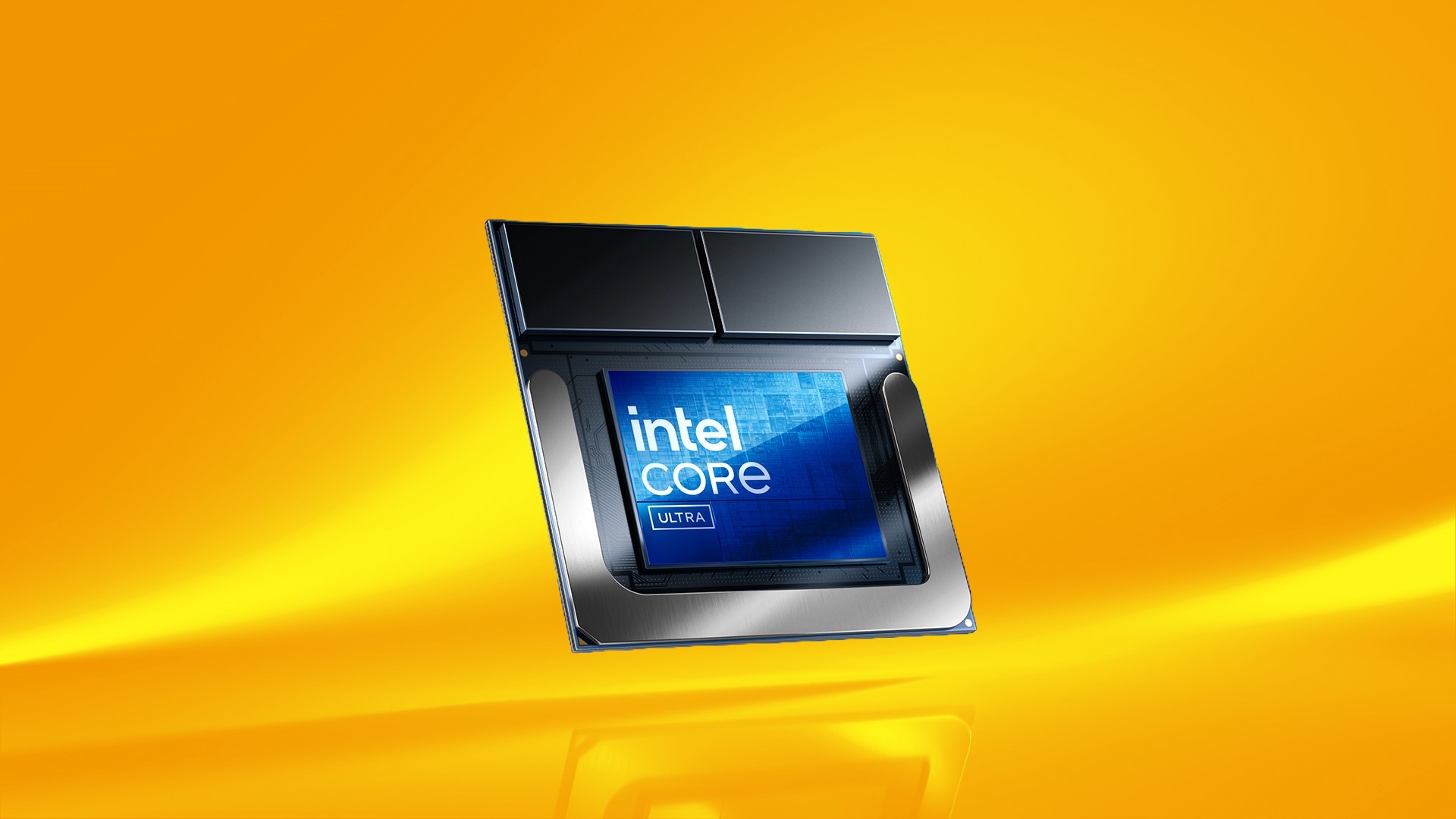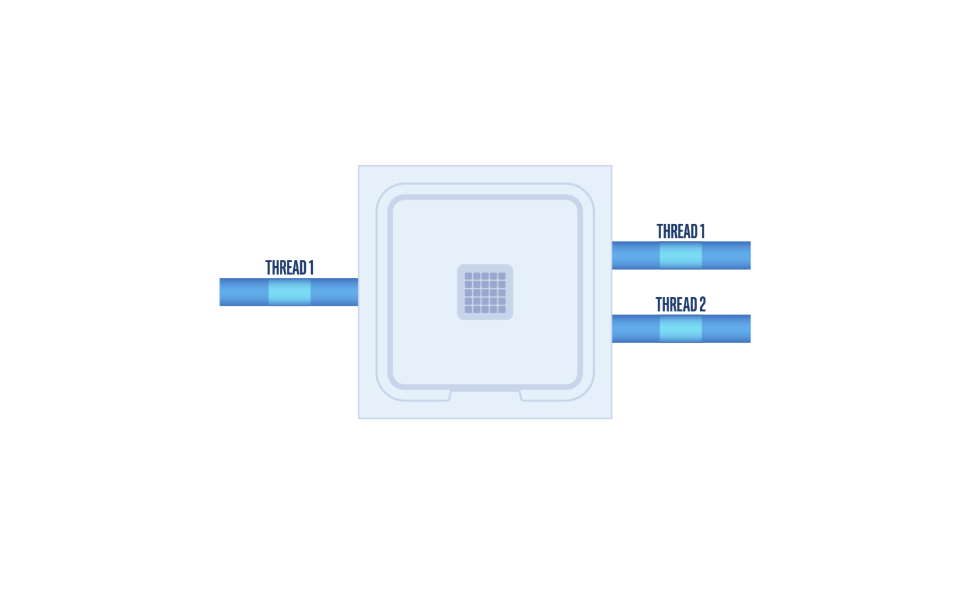Arrow Lake leaks suggest Intel's decision to ditch Hyper-Threading could give its new chips a big boost
So long, and thanks for all the threads

Intel decided to ditch Hyper-Threading for the upcoming Arrow Lake processors, and based on a new set of leaks, it may have been for the best.
According to a leak from ECSM_Official, a reputable hardware leaker out of China, Intel's upcoming processor is seeing some big benefits to power efficiency and multi-core performance, proving that the decision to drop the multithreaded core design makes for a stronger processor.
Here's what you need to know about what the leaked benchmarks mean for Intel's upcoming chip.
What is Hyper-Threading?

Before we get into the leaks, let's take a step back.
Hyper-Threading is an Intel-specific technology that allows more than one processor thread to run on each CPU core, allowing the processor to handle multiple tasks simultaneously.
The main idea driving Intel's Hyper-Threading technology was that it would further enhance a computer's ability to multitask. Essentially, the additional threads on each processor core would allow the computer to do more work in parallel than just using multiple cores to handle the task. So, if you tend to work on several tasks and programs simultaneously, Hyper-Threading should provide a smoother computing experience.
This kind of parallel computing using multiple threads at the same time isn't unique to Intel; AMD and ARM processors have similar hardware. AMD's Threadripper processors essentially take that idea and run with it to the absolute limit, offering processors with up to 96 computing cores for a total of 192 threads.
Sign up to receive The Snapshot, a free special dispatch from Laptop Mag, in your inbox.
Queue the benchmarks
路边捡到一颗没见过的 CPU顺带一提这个成绩是偏低的,频率频率会低 0.1G~0.2G。N3B 解热居然还不错 160W 64℃不过这个功耗也是异常的,理论上应该低一点,不知道是传感器有问题还是调的有问题,先图一乐吧,别太当真。 pic.twitter.com/ItAlq03I2jSeptember 13, 2024
Chinese hardware leaker ECSM_Official ran the Intel Core Ultra 5 245K on the CPU-Z benchmark, showing a sharp increase in performance over the previous generation of Intel processors.
ECSM_Official's Core Ultra 5 245K scored 850.6 points in the single-thread performance benchmark and 10,907.1 points on the multithread performance benchmark. According to the CPU-Z archives, the record scores for the Intel Core i5-14600K are 852 points in single-core performance and 9868 points in multithread performance. So that's about a 10.5% performance increase from last gen to the upcoming Arrow Lake generation processor. The Intel Core i7-14700K CPU-Z record is 891 for single-thread performance and 12117 points for multi-threaded performance. This puts the Core Ultra 5 245K at about 90% of the Core i7's performance.
Much like the Intel Core i5-14600K, the Intel Core Ultra 5 245K will be a budget desktop chip. And yet that single and multi-threaded performance allows the budget processor to rival the previous generation Intel Core i7-14700K, which is a more high-end CPU.
Additionally, these results were found on a processor that hasn't been fully optimized, as the Intel Core Ultra 5 245K processor tested by ECSM_Official was operating at a lower frequency than expected. So the chip may be even faster once the final optimizations roll out.
Why ditching Hyper-Threading is the right call
By dropping Hyper-Threading from the Intel Core Ultra 200 series Arrow Lake processors, Intel has managed to speed up multithread processor performance. At least on its more budget-conscious processors like the Intel Core Ultra 245K.
While multitasking is a way of life for plenty of folks, it seems there is a point where multi-threaded processing is just less efficient than using multiple computing cores. Much like the processor core count race died out for most consumer-level processors, it seems we may be seeing the end of multithreaded performance on consumer machines.
Obviously, there will always be exception cases where multithreaded performance is still preferable, and we expect to see Intel keep Hyper-Threading around on the Xeon and Xeon CPU Max data center, edge, and workstation chipsets.
All of this should also mean good things for the laptop version of the Arrow Lake Intel Core Ultra 200 chips, as mobile processors operate at lower power and lower heat thresholds. So any laptop processor will greatly benefit from increased efficiency.
More from Laptop Mag
- iPadOS 18 disaster — Bricked iPads force Apple to pause major update
- Nintendo Switch 2 images leak, suggesting bigger screen and a mysterious new button
- How AMD could make Valve's Steam Deck obsolete

A former lab gremlin for Tom's Guide, Laptop Mag, Tom's Hardware, and TechRadar; Madeline has escaped the labs to join Laptop Mag as a Staff Writer. With over a decade of experience writing about tech and gaming, she may actually know a thing or two. Sometimes. When she isn't writing about the latest laptops and AI software, Madeline likes to throw herself into the ocean as a PADI scuba diving instructor and underwater photography enthusiast.









